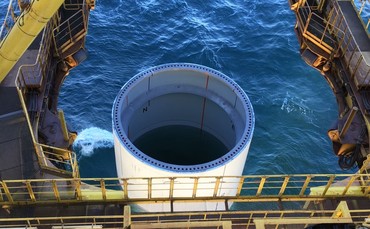Many of the technologies needed to decarbonise the renewable energy supply chain already exist, but are not yet cost competitive, CEO argues
Suppliers to renewable energy giant Ørsted are to be asked to set science-based decarbonisation targets and step up efforts to harness renewables to power the manufacturing of components and ships used in the clean energy supply chain.
The Danish company unveiled the new plans this week, as part of its programme to decarbonise its supply chain by 2040. It said it was already on track to meet its 2025 goal to decarbonise its own operations, but now wanted to focus on cutting energy trading and supply chain emissions in half by 2032, before then getting them down to net zero by 2040.
Ørsted hopes that setting a public and challenging target for its supply chain it will help drive the innovation needed to bring alternative technology costs down, chief executive Henrik Poulsen explained.
“It’ll be challenging to reach a carbon neutral footprint by 2040, and it’ll require significant innovation in all parts of our supply chain,” he said. “Many of the green technologies to be used to decarbonise our supply chain exist but they’re not yet cost competitive.”
Renewable energy supply chains incorporate several carbon intensive sectors, such as the steel, aluminium, and copper used to produce wind turbines, foundations, substations and cables. Ørsted has identified suppliers working in these areas as its biggest emitters, followed by the fossil fuels used to power the ships that transport and install offshore wind turbines.
As such, the company is asking its strategic suppliers, which comprise 50 per cent of its procurement spend, to disclose their own emissions and set science-based carbon reduction targets; source 100 per cent renewable electricity for the manufacture of wind turbines, foundations, cables, substations and components; and develop a roadmap to power vessels with clean fuels.
Meanwhile, the company’s wider supply chain, which incorporates more than 22,000 suppliers in total, will be subject to strengthened sustainability criteria in the company’s procurement tenders so as to encourage firms to reduce the carbon impact of their goods and services.


